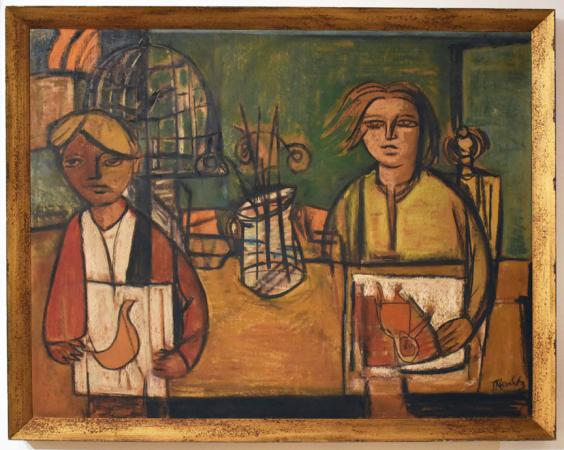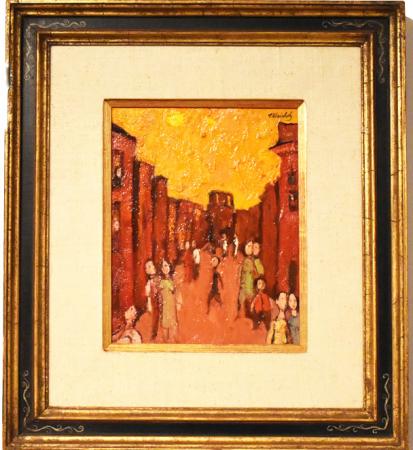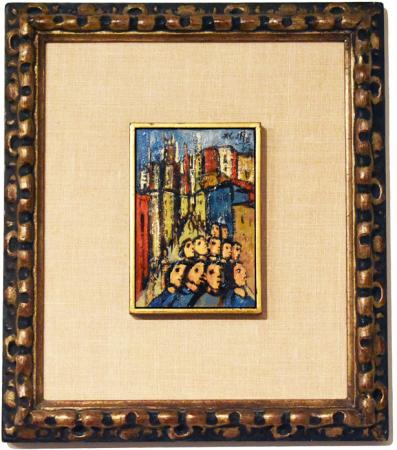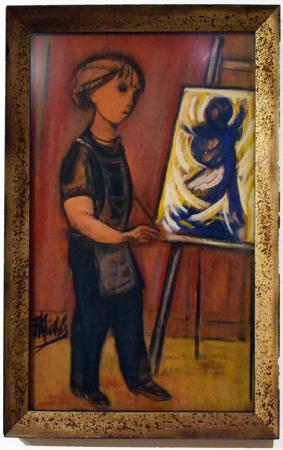Frank Kleinholz
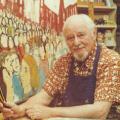
Frank Kleinholz [1901-1987]
Frank Kleinholz was born in Brooklyn, NY in 1901. Hardworking and diligent as a student, he earned a scholarship to Colby College in Maine and then went to Fordham Law School, passing the Bar exam in 1923.
In the 1930s, bored and discontented with what he saw as his “nice bourgeois life” he began painting with a friend, artist Alex Dobkin whose studio was across the street. He fell in love with painting and tried to exist in both worlds for several years before abandoning the law for art. He had his first one-man exhibit at the age of 40
He studied painting under Yasuo Kuniyoshi and Sol Wilson and attained some prominence with the inclusion of Abstractionists in the Carnegie Institute exhibition of 1941. His strongest influences were American Social Realists Reginald Marsh and Philip Evergood, the German Expressionists George Grosz and Kathe Kollewitz, the Mexican muralists Rivera, Orozco, and Siqueiros, and the early 20th century Paris Modernists. Newsweek described him as a "Brooklyn-born Gauguin,"
For a time he lived in Paris, studying printmaking and on the Isle de Brehat in Brittany but finally returning to New York in 1950.
Kleinholz’s sources for his art were urban life in New York, Brooklyn and Coney Island, as well as intimate scenes of parents and children, flowers and birds, and sunbathers. His political works include antiwar paintings, ironic statements such as Man and Superman, and depictions of peace demonstrations. His style is marked by vivid color, energetic brushwork, angular geometry, forceful lines, shortened perspective, and elements of dream and fantasy. These combine to convey intense emotion and a complex psychological subtext.
His work is in prestigious collections such as the Metropolitan Museum of Art in New York, The Fine Arts Museum in Moscow, the Brooklyn Museum, the Hirschhorn Museum in Washington DC among many others. He continued to work until late in life but had moved to Perrine, Florida and died in 1987 in Miami, Florida.
A couple of books are available including “Frank Kleinholz-the Outsider” by August Freundich and “Frank Kleinholz: A Self-Portrait”, autobiographical with an introduction by Phillip Evergood.

